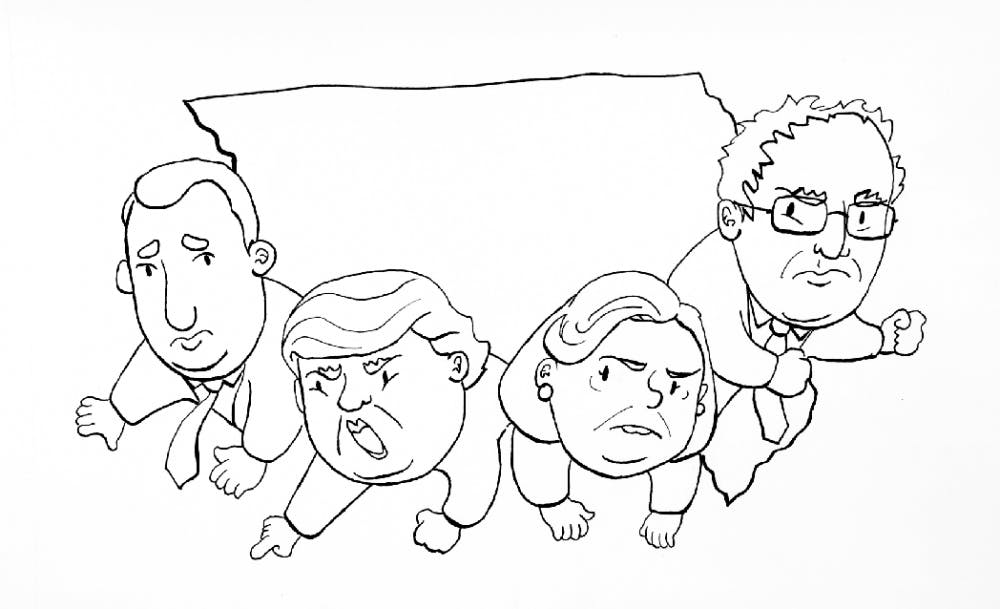Despite close victories of both former Secretary of State Hillary Clinton and Sen. Ted Cruz in Iowa, the two candidates are far from receiving their respective party’s nominations.
But that doesn’t stop the media, voters, political analysts and the candidates themselves from acting like the race is over.
For the past ten election cycles, Iowa has been the landmark predictor for the American people on how the election will turn out. That’s not to say it’s been accurate, but the country has placed that much stock in its results.
So does it matter which state goes first?
The more people place their faith in Iowa’s results, the more those results will decide the ultimate election. The media performs coverage, officials make endorsements, voters cast ballots, analysts make predictions and candidates make crucial decisions based solely on Iowa.
In addition, Iowa is an inaccurate representation of the American people. It’s 92 percent white and 77 percent Christian. It has three times fewer foreign born residents compared to the national average. In the last election cycle, the Iowa voter turnout was only 19 percent.
All of these amount to a deceptive sample population to represent the nation as a whole. For some reason, Iowa has fooled the entire nation into investing in its fortune-telling ability.
However, a closer look at the facts reveals a harsher truth.
Of the last 13 caucuses, Iowa’s pick has become the nominee seven times, and New Hampshire’s, eight. Five times Iowa has picked the wrong candidate, while New Hampshire selected the correct one, compared to four times the other way around.
And let’s not forget 1992, when neither state chose Bill Clinton, who would go on to become the nominee and a two-term president.
In 2012, former Gov. Mitt Romney’s chief strategist made a damning observation about the Iowa caucuses when he said, “What is the difference between first and third place in Iowa going to be, 4,000 votes? It’s like a student body election.”
In fact, the difference that year between Rick Santorum, who finished first, and Ron Paul, who finished third, was 3,803 votes.
That’s just over 10% of IU’s undergraduate student body size deciding a presidential race.
With all of these flaws and loopholes, why is the nation so invested in Iowa’s results? There isn’t necessarily a better alternative. It’s tough not to cling to the first indication of who the next leader of the free world is going to be.
It’s a dangerous game. In our democracy, we must make sure we don’t resign ourselves to unnecessary hype and false promises instead of using the ballot box to be the ultimate decision maker.
The power to choose the president rests with the people, but they make the mistake of relinquishing that power to Iowan caucus-goers.






